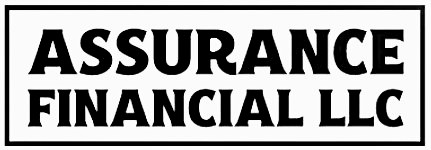Have you ever dealt with someone who seems to file lawsuits as a hobby? Perhaps you’ve heard stories about individuals who repeatedly sue businesses despite consistently losing their cases. For businesses facing such situations, defending against multiple meritless lawsuits can be financially draining and time-consuming. Fortunately, Texas law provides a mechanism to address this problem through Chapter 11 of the Texas Civil Practice and Remedies Code, which allows courts to declare certain individuals as “vexatious litigants.”
But what exactly makes someone a vexatious litigant? How high is the bar to receive this designation, and what protections does it provide to businesses? The recent Texas appellate case of Carroll v. I.Q. Data Int’l, Inc. provides an excellent opportunity to examine these questions and understand how courts apply vexatious litigant statutes.
Facts & Procedural History
The case began with a dispute between Charlotte Carroll and Property Reserve Inc., which does business as Fountain Pointe Las Colinas (“Fountain”). Carroll had signed a twelve-month lease agreement with Fountain on March 17, 2022. Near the end of her lease term, Carroll vacated the property without paying rent for the month and without paying additional fees for utilities and cleaning. Fountain subsequently assigned Carroll’s account to I.Q. Data International, Inc. for collection.
When I.Q. Data contacted Carroll about the debt, she claimed she didn’t owe anything because she had filed a lawsuit against Fountain. She requested that I.Q. Data stop contacting her. I.Q. Data verified the debt with Fountain and informed Carroll they had done so.
On September 13, 2023, Carroll filed suit against I.Q. Data, claiming violations of the Texas Debt Collection Practices Act (DCPA), Texas Deceptive Trade Practices Act (DTPA), fraudulent misrepresentation, fraud, and intentional infliction of emotional distress. I.Q. Data denied these allegations and filed counterclaims, asserting that Carroll’s claims were groundless and brought in bad faith.
On the same day it filed its answer, I.Q. Data also moved to have Carroll declared a vexatious litigant under Chapter 11 of the Texas Civil Practice and Remedies Code. In its motion, I.Q. Data claimed that “Carroll has filed over 30 lawsuits in Dallas and Tarrant counties as a pro se litigant in recent years and she unsuccessfully appeals nearly every judgment or order that is entered against her.” I.Q. Data requested that the court declare Carroll a vexatious litigant, require her to obtain permission from a local administrative judge before filing any new lawsuits in Texas as a pro se litigant, and require her to pay a $20,000 bond to secure I.Q. Data’s anticipated legal fees.
What Makes Someone a “Vexatious Litigant” Under Texas Law?
Chapter 11 of the Texas Civil Practice and Remedies Code provides a mechanism to restrict vexatious litigation by pro se individuals who abuse the legal system by pursuing numerous frivolous lawsuits. The statute aims to curb such litigation by requiring plaintiffs found by the court to be “vexatious” to post security for costs before proceeding to trial.
Under this chapter, a defendant can move for an order determining that a plaintiff is a vexatious litigant. The court may find that a pro se plaintiff is a vexatious litigant if the defendant shows two things:
- In reasonable probability, the plaintiff will not prevail in the case against the defendant; and
- The plaintiff has a history of pro se litigation covered by the statute.
The statute defines a “history of vexatious litigation” as having commenced, prosecuted, or maintained at least five state or federal civil actions as a pro se litigant in the immediately preceding seven-year period that were:
- Finally determined adversely to the plaintiff;
- Permitted to remain pending at least two years without having been brought to trial or hearing; or
- Determined by a trial or appellate court to be frivolous or groundless under state or federal laws or rules of procedure.
The statute also covers situations where a plaintiff repeatedly relitigates the same issues against the same defendant after a final determination, or where the plaintiff has previously been declared a vexatious litigant by another court based on substantially similar facts.
What Evidence Shows a History of Vexatious Litigation?
For the second prong of the vexatious litigant determination, I.Q. Data needed to show that Carroll had a history of pro se litigation covered by the statute. I.Q. Data attached evidence to its motion showing several cases brought by Carroll pro se, including five cases determined adversely to Carroll or determined to be frivolous or groundless in the immediately preceding seven-year period:
- Carroll v. CC Maple, LLC, No. 05-22-01357-CV, 2024 WL 725501 (Tex. App.-Dallas Feb. 22, 2024) (affirming judgment against Carroll).
- Carroll v. J. P. Morgan Chase Bank, No. 02-19-00014-CV, 2019 WL 490128 (Tex. App.-Fort Worth Feb. 7, 2019) (dismissing Carroll’s appeal of summary judgment granted against her after concluding her notice of appeal was untimely).
- Carroll v. European Service Center, Inc., Trial Court Cause No. CC-20-01206-D (County Court at Law No. 4, Dallas County, Texas, Aug. 26, 2021) (granting no-evidence summary judgment against Carroll).
- Carroll v. Metro Office Equip., Inc., Trial Court Cause No. 2021-007202-3 (County Court at Law No. 3, Tarrant County, Texas, Mar. 3, 2022). In an appeal from that order, the appellate court noted that the trial court granted dismissal of Carroll’s claims pursuant to Rule 91a, which provides for dismissal of baseless causes of action.
- Carroll v. State Farm Mut. Auto. Ins. Co., No. 4:18-CV-458-A, (N.D. Tex. Sept. 14, 2018) (dismissed all but breach-of-contract claim for failure to plead any facts upon which a plausible claim to relief could be granted and later dismissed her remaining claim for failure to amend her complaint).
The court concluded that the record evidence supported the finding that I.Q. Data had shown Carroll had a history of pro se litigation covered by the statute.
How Does a Vexatious Litigant Designation Affect Future Lawsuits?
If a trial court determines that a plaintiff is a vexatious litigant, it must order the plaintiff to furnish security for the defendant’s anticipated costs and reasonable attorney’s fees. If the plaintiff does not timely furnish the security, the trial court must dismiss the litigation as to the defendant who filed the motion.
Beyond the immediate case, the designation has significant implications for future litigation. As requested by I.Q. Data in this case, a vexatious litigant designation can prevent the individual from filing any new suit in Texas as a pro se litigant without first obtaining permission from a local administrative judge. This requirement serves as a screening mechanism to prevent further abuse of the legal system.
What Should Businesses Do When Facing Frivolous Lawsuits?
When your business faces a frivolous lawsuit from a pro se litigant with a history of filing similar suits, the vexatious litigant statute can be a powerful tool. Here are some steps to consider:
- Research the plaintiff’s litigation history to determine if they meet the criteria for a vexatious litigant designation. This may require searching court records in multiple counties and jurisdictions where the plaintiff has filed lawsuits.
- Document all interactions with the plaintiff, as these records may be crucial in demonstrating that their claims lack merit.
- Consider filing a motion to declare the plaintiff a vexatious litigant early in the litigation process, as this can potentially save significant time and expense.
- Consult with an attorney who has experience with vexatious litigant motions. This type of motion requires specific evidence and careful preparation. Our services can help connect you with experienced legal counsel.
- If your business operates in multiple states, be aware that proper entity formation and maintenance can help shield business assets in one state from judgments in another.
For businesses operating across state lines, proper foreign qualification is essential to ensure you have legal standing to defend against lawsuits in different jurisdictions. This is especially important when dealing with potentially vexatious litigation.
The Takeaway
The Carroll v. I.Q. Data Int’l case demonstrates how Texas’ vexatious litigant statute works to protect businesses from individuals who abuse the legal system through multiple frivolous lawsuits. To establish someone as a vexatious litigant, a defendant must show both that the plaintiff is unlikely to prevail in the current case and that they have a history of unsuccessful pro se litigation. The designation can require the plaintiff to post security for the defendant’s costs and obtain permission before filing new lawsuits, effectively creating a screening mechanism to prevent further abuse of the legal system. For businesses repeatedly targeted by the same litigant, this statute offers meaningful protection and can significantly reduce the financial burden of defending against meritless claims.


